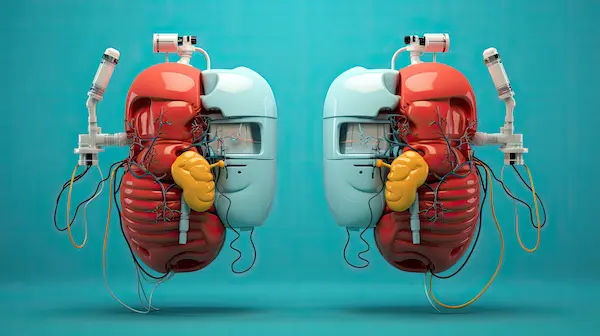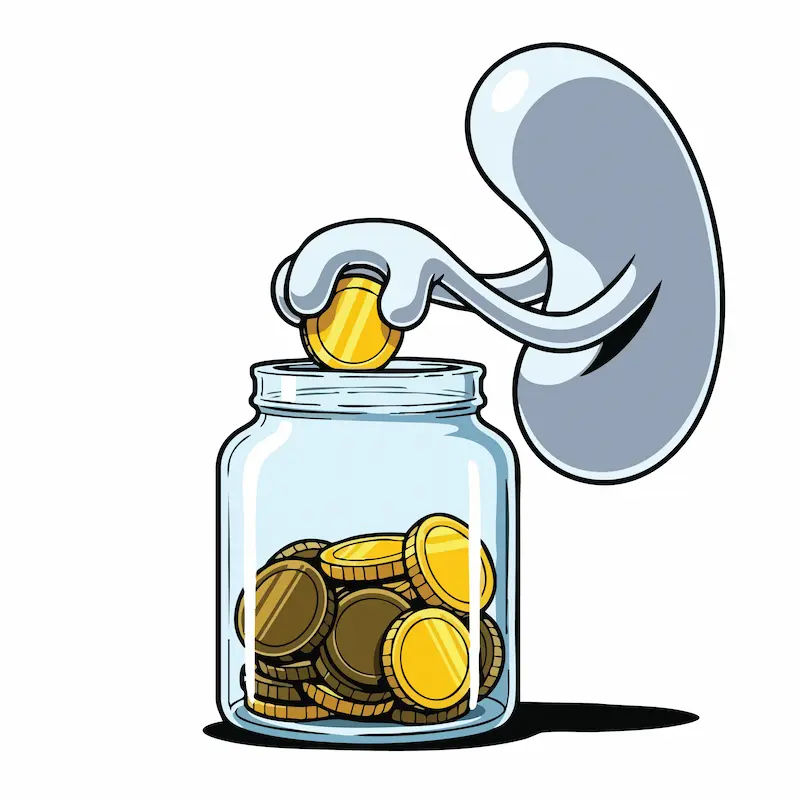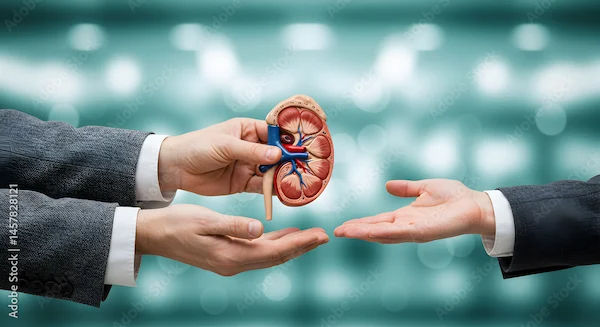Guide to Acute Kidney Injury And Glomerular Disorders
Learn about the causes, symptoms, and treatment of Acute Kidney Injury (AKI) and glomerular disorders. This comprehensive guide provides essential information for patients and healthcare professionals.

Written by Dr. J T Hema Pratima
Reviewed by Dr. Rohinipriyanka Pondugula MBBS
Last updated on 13th Jan, 2026

Your kidneys are incredible, hardworking organs that perform the vital task of filtering your blood around the clock. But sometimes, these essential filters can get injured suddenly and severely—a condition known as Acute Kidney Injury (AKI). This isn't the slow, progressive decline of chronic kidney disease; AKI is a rapid onset medical event that demands immediate attention. It can be frightening and confusing, often arising as a complication of another illness. This guide will demystify acute kidney injury and related glomerular disorders, walking you through the causes, warning signs, and steps toward recovery. Understanding these kidney disorders is the first step in protecting your health and knowing when to seek help from a medical professional.
What is Acute Kidney Injury (AKI)?
Acute Kidney Injury, formerly known as acute renal failure, is a sudden episode of kidney failure or damage that happens within a few hours or a few days. This abrupt loss of function causes waste products to build up in your blood, making it hard for your kidneys to maintain the right balance of fluids and electrolytes in your body. This rapid decline is what primarily differentiates it from chronic kidney disease (CKD), which develops slowly over many years. However, having AKI can put you at a higher risk for developing CKD in the future, and vice versa.
Consult a General Physician for the best advice
Your Kidneys: The Body's Master Filters
To understand AKI, it helps to know what your kidneys do. Think of them as sophisticated recycling plants. Every day, they process about 200 quarts of blood to sift out about 2 quarts of waste products and extra water, which become urine. They also release hormones that regulate blood pressure, make red blood cells, and keep your bones strong. The tiny filtering units inside them, called nephrons, are where the magic happens. When these nephrons are damaged, the entire system can falter rapidly.
How AKI Differs from Chronic Kidney Disease?
The key difference is speed and potential reversibility. Chronic Kidney Disease is a gradual, often irreversible loss of function measured over months or years. Acute Kidney Injury is a sudden drop, often occurring in people who are already hospitalized for another condition, like a severe infection or heart failure. The silver lining is that AKI is often reversible if identified and treated promptly.
The Three Main Culprits: Causes of Acute Kidney Injury
Doctors classify the causes of AKI into three categories based on where the problem originates.
Prerenal Causes (Problems with Blood Flow)
This is the most common type. It occurs when something reduces blood flow to the kidneys, preventing them from doing their job. Causes include:
Severe dehydration (from vomiting, diarrhea, or inadequate fluid intake)
Significant blood loss
Heart failure or heart attack reducing pumping efficiency
Certain medications like blood pressure drugs (ACE inhibitors/ARBs), especially if you are dehydrated.
Intrinsic Causes (Damage Within the Kidney)
This type involves direct damage to the kidney's structures. This can be due to:
Ischemia: When prerenal causes are severe or prolonged, the lack of oxygen can directly damage the kidney tissue.
Toxins and Medications: Certain antibiotics, chemotherapy drugs, and contrast dyes used in imaging tests can be toxic to the kidneys. This is why doctors carefully monitor kidney function during these treatments.
Muscle Breakdown (Rhabdomyolysis): Severe muscle injury releases a protein that can damage the kidneys
Glomerular Disorders: Attacking the Filter Itself
A critical subset of intrinsic causes is glomerular disorders. The glomeruli are the tiny networks of blood vessels within the nephrons that act as the primary filters. When these become inflamed—a condition called glomerulonephritis—they can't filter properly. This inflammation is often caused by autoimmune diseases (like lupus), infections (like strep throat), or vasculitis.
Postrenal Causes (Blockages After the Kidney)
These are obstructions in the urinary tract that prevent urine from leaving the body, causing it to back up into the kidneys. This can be caused by:
Kidney stones
Enlarged prostate (in men)
Certain cancers in the abdomen
Blood clots in the urinary tract
Recognizing the Signs: Symptoms of Acute Kidney Injury
The symptoms of kidney failure from AKI can be subtle or severe. Sometimes, it's only detected through lab tests done for another reason. Key signs to watch for include:
Drastically reduced urine output: This is a hallmark sign, though sometimes output remains normal.
Swelling (edema): Particularly in your legs, ankles, or around your eyes due to fluid retention.
Shortness of breath: Caused by fluid buildup in the lungs.
Fatigue and confusion: As toxins build up in the brain.
Nausea and chest pain/pressure.
Irregular heartbeat: Due to electrolyte imbalances.
It's crucial to note that you may not experience all these symptoms. If you have risk factors and notice even one or two, especially reduced urine output, it's a reason to consult a doctor.
Getting a Diagnosis: How Doctors Identify AKI
If AKI is suspected, doctors will run a series of tests to confirm the diagnosis and find the cause.
Key Blood Tests: Serum Creatinine and eGFR
The primary test measures serum creatinine, a waste product your muscles produce. Healthy kidneys filter this out of your blood. A rising creatinine level indicates falling kidney function. This value is used to calculate your estimated glomerular filtration rate (eGFR), which is the best overall measure of how well your kidneys are filtering.
Urine Tests: Looking for Clues
A urinalysis can reveal abnormalities such as:
Proteinuria: Protein in the urine, a sign of glomerular damage.
Hematuria: Blood in the urine, which can also point to inflammation.
Certain casts: Tiny particles made of cells that suggest specific types of kidney disease.
For convenient and accurate testing, Apollo24|7 offers home collection services for crucial tests like serum creatinine and urinalysis, making it easier to monitor your kidney health.
Imaging and Biopsies
An ultrasound is common to check for obstructions (postrenal causes) and to see the size and structure of the kidneys. In complex cases, especially when a glomerular disorder is suspected, a kidney biopsy—where a tiny sample of tissue is removed for analysis—may be necessary to determine the exact cause and guide treatment.
The Road to Recovery: Treatment for Acute Kidney Injury
Treatment focuses on addressing the underlying cause and supporting the kidneys while they heal.
Treating the Underlying Cause
This is the most critical step. It could mean:
Prerenal: Receiving IV fluids to treat dehydration or medications to support blood pressure.
Intrinsic: Stopping any offending medications or treating an underlying autoimmune disease with steroids or other immunosuppressants.
Postrenal: Removing a kidney stone or placing a catheter to relieve a prostate blockage.
Supportive Care and Dialysis
Doctors will carefully manage your fluid intake, electrolytes, and prescribe a kidney-friendly diet (often low in sodium, potassium, and protein). If toxin levels become dangerously high or fluid overload is severe, temporary dialysis may be needed to artificially filter the blood until the kidneys recover. Not everyone with AKI needs dialysis.
Understanding Glomerular Disorders
As a major intrinsic cause of AKI, glomerular disorders deserve a closer look.
What are Glomeruli and What Goes Wrong?
Glomeruli are the microscopic filters in your kidneys. Disorders here, often termed glomerulonephritis, involve inflammation or scarring of these filters. This disrupts their ability to be selective—they start letting essential proteins and blood cells leak into the urine while failing to filter out waste.
Common Types: Nephrotic vs. Nephritic Syndrome
These disorders often present as one of two syndromes:
Nephrotic Syndrome: Characterized by heavy protein loss in urine (>3.5g/day), leading to low blood protein, severe swelling (edema), and high cholesterol.
Nephritic Syndrome: Characterized by blood in the urine (hematuria), high blood pressure, some protein loss, and often a rapid decline in kidney function (AKI).
Diagnosing the specific type requires a doctor's expertise, often involving a nephrologist. If you experience sudden swelling or notice pink/colacolored urine, consult a doctor online with Apollo24|7 for an immediate evaluation to determine the next steps.
Can Acute Kidney Injury Be Prevented?
While not all cases are preventable, you can significantly reduce your risk:
Stay Hydrated: Especially during illness, exercise, or hot weather.
Use Medications Wisely: Follow instructions for over-the-counter pain relievers (NSAIDs like ibuprofen) and never exceed the recommended dose.
Manage Chronic Conditions: Keep conditions like diabetes, high blood pressure, and heart disease under control with the help of your doctor.
Get Regular Checkups: If you have risk factors, regular blood and urine tests are essential for early detection.
Conclusion
Acute Kidney Injury is a serious but often treatable condition. Your kidneys are resilient organs, and with timely intervention, they can frequently recover their function. The most important step is awareness—knowing the risk factors, heeding the warning signs like changes in urine output and unexplained swelling, and seeking medical advice without delay. Whether it's a result of dehydration, a medication, or a complex glomerular disorder, early diagnosis is the cornerstone of effective treatment. If you have any concerns about your kidney health, especially if you have existing health conditions, don't hesitate to be proactive. Book a physical visit to a doctor with Apollo24|7 to discuss your risks, get the appropriate tests, and create a plan to keep your body's vital filtration system healthy for years to come.
Consult a General Physician for the best advice
Consult a General Physician for the best advice

Dr Aakash Andgi
General Physician/ Internal Medicine Specialist
9 Years • MBBS MD
Bengaluru
Apollo Clinic, JP nagar, Bengaluru

Dr. Sudhashree R
General Physician/ Internal Medicine Specialist
13 Years • MBBS, MRCEM
Bengaluru
Apollo Clinic, JP nagar, Bengaluru

Dr. Zulkarnain
General Physician
2 Years • MBBS, PGDM, FFM
Bengaluru
PRESTIGE SHANTHINIKETAN - SOCIETY CLINIC, Bengaluru

Dr. Divyashree K
General Physician/ Internal Medicine Specialist
5 Years • MBBS
Bengaluru
Apollo Clinic, JP nagar, Bengaluru

Dr. Smitha Nagaraj
General Physician/ Internal Medicine Specialist
15 Years • MBBS, Diploma in Family Medicine
Bengaluru
Apollo Medical Center, Marathahalli, Bengaluru
More articles from Kidney Disease
Frequently Asked Questions
1. Can you recover from acute kidney injury completely?
Yes, many people who experience AKI can recover complete or nearcomplete kidney function, especially if the underlying cause is treated quickly and effectively. However, recovery depends on the severity of the injury and the patient's overall health.
2. What are the first signs of kidney problems?
The earliest signs are often subtle and can include fatigue, loss of appetite, and difficulty concentrating. More specific signs of kidney failure include changes in urine output (usually less, but sometimes more), foamy urine (indicating protein), swelling in the extremities, and shortness of breath.
3. How long does it take to recover from acute kidney injury?
The recovery timeline varies. In less severe cases, kidney function may begin to improve within several days to a week after treatment starts. In more severe cases requiring dialysis, recovery could take several weeks or even months.
4. What is the difference between a kidney injury and kidney disease?
The key difference is time. An injury (AKI) is sudden and often reversible. Chronic kidney disease develops slowly over many years and is usually progressive and irreversible, though its progression can be slowed.
5. Are glomerular disorders treatable?
Yes, many glomerular disorders are treatable. Treatment depends on the specific cause but may include corticosteroids to reduce inflammation, immunosuppressant drugs, blood pressure medications (like ACE inhibitors), and lifestyle changes. The goal is to control the inflammation, manage symptoms, and prevent long-term kidney damage.




